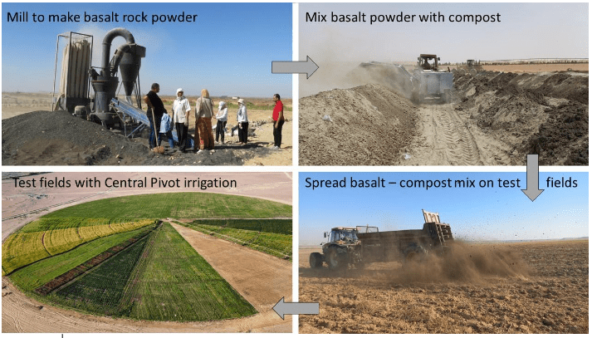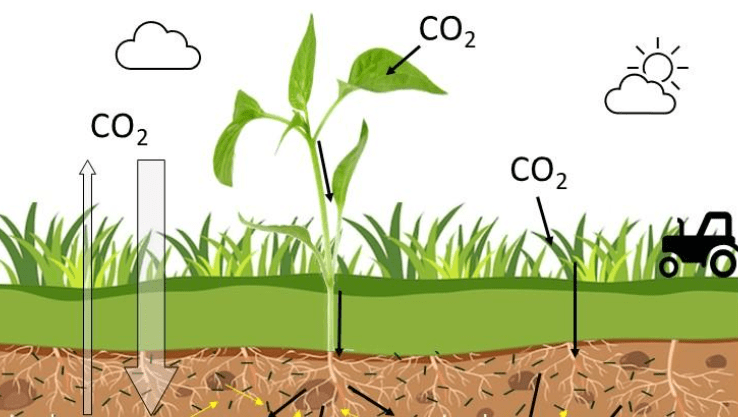An approach formulated by Dutch professor Dr. Olaf Schuiling offers an exciting solution to the climate change problem. This concept is based on geological understanding of how earth has solved environmental problems over many millions of years. Besides the ability of plants to sequester CO2 from the atmosphere, some rocks, such as granite and basalt, also can absorb carbon dioxide when their surfaces are dissolved by weathering and natural cycles.
Based on this idea, Heliopolis University (HU) together with SEKEM have started an exciting innovative project at SEKEM farm in Al Wahat Al Bahariya, in which basalt rock powder is applied to agricultural fields, contributing to regulation of climate and additional nourishment of crops. Atmospheric CO2 is absorbed by plants and fixed in the soil by direct exchange. Organic acids from plant roots and the development of microbes cause basalt to dissolve, bring nutrients to the plants and fix CO2 as a carbonate mineral.

Supported by EU-PRIMA, this experiment started on the 20 feddan land at the Al Wahat farm. Eight different crops are treated with basalt and compost mixed in different proportions. Currently, data and samples are being collected to discover the optimal rate of basalt powder that can be applied for crops, its effects on CO2 sequestration and crops production, and other positive or negative aspects of using basalt in agricultural activities.
HU and SEKEM are extremely excited about this project. If the basalt experiment shows positive outcomes, it has a great potential to be applied in other farms all over Egypt. The farmers will benefit from it by replacing expensive chemical fertilizers with cheap, fully natural basalt rock powder. Combined with the organic approach in agriculture, it will help to improve soil health and generate carbon certificates that will increase farmers` income. With this approach Egypt is projected to remove more than 20 million tons of CO2 from the atmosphere per year, which represents 10% of the annual country`s emissions.
There currently exist 6 similar projects worldwide, but the SEKEM and HU experiment is the only one that is conducted in a desert environment. There are hopes that this experiment will support the idea that organic agriculture can and must be applied in arid regions and become mainstream.

